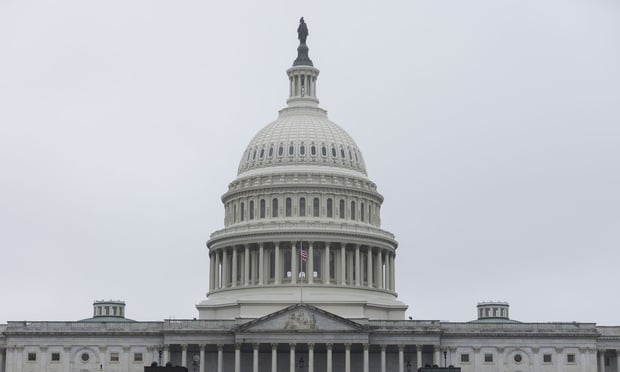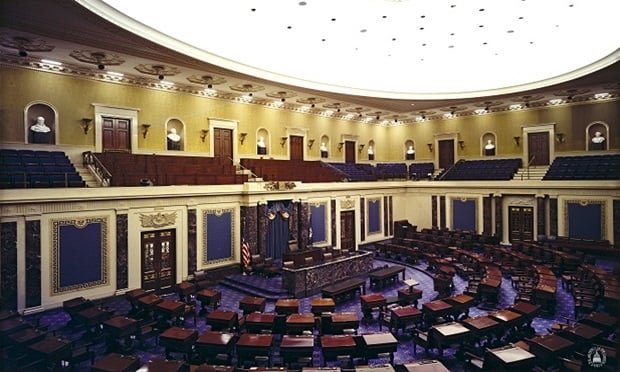 U.S. Senate Chamber. Credit: Architect of the Capitol.
U.S. Senate Chamber. Credit: Architect of the Capitol.
Elizabeth MacDonough, the Senate parliamentarian, has put a big obstacle in the way of Congressional Republicans who want to pass the One Big Beautiful Bill Act tax and budget package by July 4.
MacDonough ruled that package supporters need at least 60 votes, not just 51 votes, to get a health care provider tax provision through the Senate.
Recommended For You
She also ruled that some other health-related provisions in the package — such as provisions that would block people who are in the United States legally but are not U.S. citizens from getting Medicaid, Medicaid or Affordable Care Act premium tax credit subsidies — need 60 votes to pass.
Congressional Republicans want to use the provisions to help "pay for" other tax package provisions that could increase federal government spending or cut federal government revenue.
Related: Would the Senate Finance tax bill add $1T to employer health plan bills?
The MacDonough ruling "results in more than $250 billion in health care cuts removed from the Republicans' big bad bill," Sen. Ron Wyden, D-Ore., the highest ranking Democrat on the Senate Finance Committee, said in a statement about MacDonough's rulings.
MacDonough's ruling means that package supporters need to try to find new "pay-fors," by adding new sources of revenue or eliminating some of the tax cuts or spending increases in the package, to get the package through the Senate.
What it means for employer health plans: A version of the tax package that the House passed in May included a package of 14 health savings account and health reimbursement arrangement provisions.
Senate committees have left the HSA and HRA provisions out of the One Big Beautiful Act bill section drafts that they've posted so far.
Congress could end up passing a bare-bones tax and budget package that has no effect at all on ordinary employer health plans.
But delays could also increase the odds that drafters will put the HSA and HRA provisions back in the package, or that entirely new provisions, such as provisions narrowing the scope of the tax exclusion for employer health benefits, could show up.
Robert F. Kennedy Jr., the secretary of the U.S. Department of Health and Human Services, said Tuesday, during a House Energy and Commerce Committee hearing on the HHS budget, that Trump administration officials are still trying to persuade the Senate to put a provision concerning use of HSA cash to pay for direct primary care practice memberships back in the package.
Budget reconciliation: MacDonough's views are important because bills normally need at least 60 votes to get through the Senate without fear of "filibusters," or endless rounds of debate.
Supporters of the big tax package want to minimize the impact of the package on the federal budget deficit so that they can use a special "budget reconciliation" process to get the package through the Senate.
The "Byrd rule," framework for the budget reconciliation process, lets budget package provisions get through the Senate with just 51 votes if the Senate parliamentarian rules that the provisions are "germane" to the federal budget and meet other requirements.
The Senate parliamentarian does not post her rulings on the web.
Sen. Jeff Merkley, D-Ore., the highest-ranking Democrat on the Senate Budget Committee, has been posting summaries of her Byrd rule rulings on the Senate Budget Committee website.
The process: Republicans in Congress have said that they want to complete work on a tax and budget package by July 4, but that deadline is self-imposed. They can change the deadline.
Republicans in Congress also appear to have the ability to ignore the Byrd rule and Senate filibuster rules if they choose to do so, but they still have to put together majorities in the House and Senate. In the House, for example, the tax package passed by a vote of just 215-214, and Republicans had trouble persuading the most conservative and the most centrist members to vote for the same package.
© Touchpoint Markets, All Rights Reserved. Request academic re-use from www.copyright.com. All other uses, submit a request to [email protected]. For more inforrmation visit Asset & Logo Licensing.






